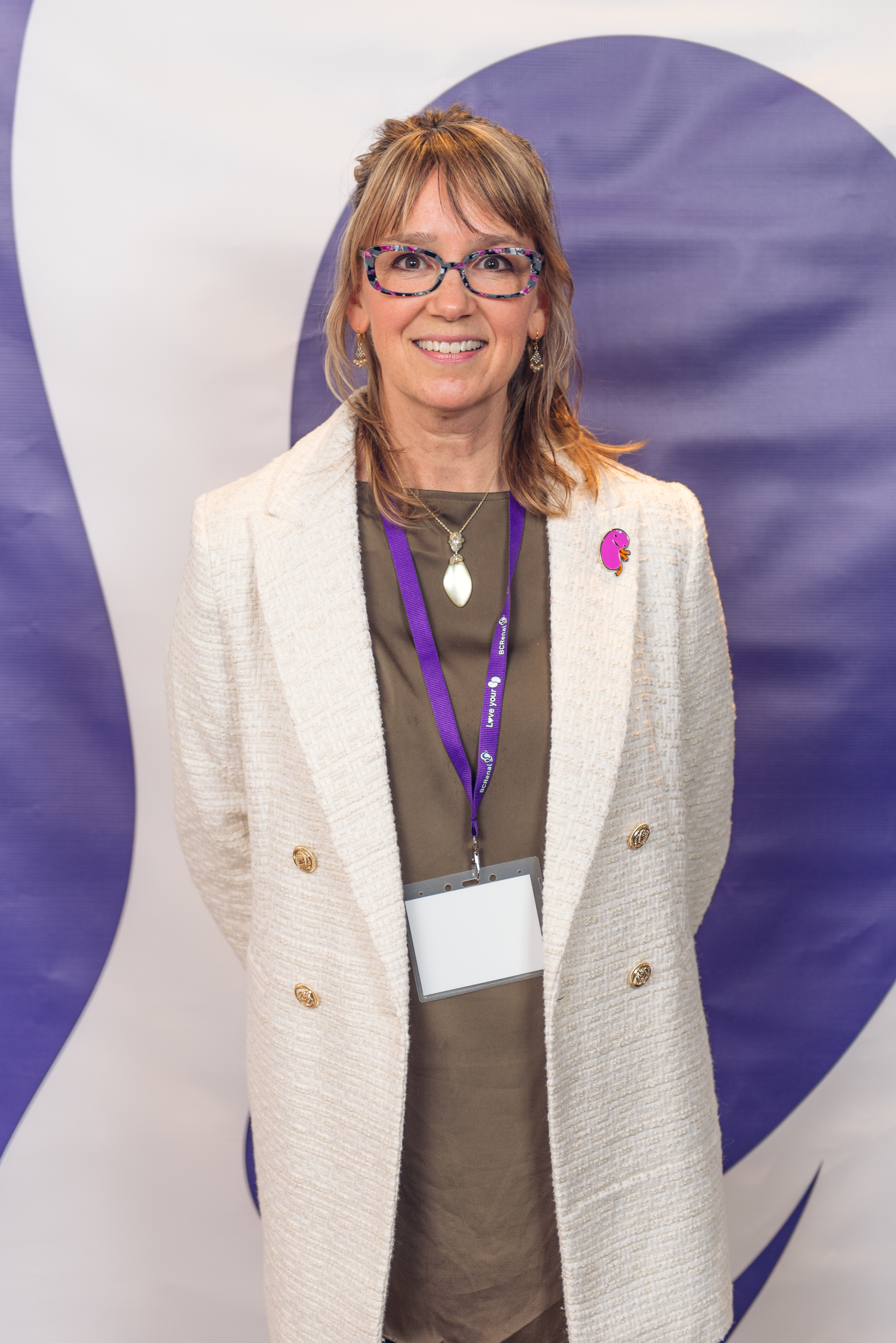
Dr. Caroline Stigant is a nephrologist, educator, advocate for climate justice – and BC Renal’s newly appointed Medical Lead in Planetary Health. With environmental sustainability named a foundational principle of our 2023-2028 strategic plan, Caroline’s role signifies a new step towards embedding planetary health practices and advancing low-carbon, high-quality kidney care across the province.
“I am keen to get started, and make meaningful and positive change,” Caroline says. “The welcome has been so warm, and I approach this role with such enthusiasm and gratitude, recognizing this is the first medical directorship for planetary health in kidney care in Canada, or that I know of anywhere.”
A blend of nephrology and planetary health
Caroline graduated from the University of Toronto and went on to establish her nephrology practice at Island Health’s Royal Jubilee Hospital in Victoria, BC. She’s also a clinical assistant professor at the UBC Division of Nephrology. Her passion for environmental sustainability is broad. She’s also a co-investigator with the UBC Planetary Healthcare Lab - where she studies the environmental impacts of kidney therapies - and she’s a member of multiple environmental committees and networks.
The beginnings of Caroline’s advocacy
Caroline explains her professional interest in planetary health stems from her personal roles as ‘gardener, mother, and educator’ – a passion that arose as an individual, not specifically as a care provider. “Starting in junior high school, I began to read about pollution and its effects on natural systems. This led to volunteer work, and an emerging understanding of what I would now call the environmental determinants of health.”
She continues, “In 2020, I learned that atmospheric carbon dioxide levels are twice their average from the last 800,000 years, due to human-caused greenhouse gas emissions. I have seen and understood everything differently since. My involvement on a personal level feels necessary, even urgent. I am old enough to remember the more stable weather patterns of my youth, and to reflect on witnessing the destabilization of Earth’s systems. I am motivated to do everything I can to align our systems within planetary boundaries, upon which we all depend.”
Learning/educating about planetary health
Much of Caroline’s advocacy focuses on advancing education among current or aspiring medical professionals – from delivering a lecture series to UBC undergraduates on medicine and climate justice, to co-leading presentations on ‘greening hospitals.’ In her words, “The medical sector at large is surprisingly ‘behind’ in our understanding of planetary health principles. Our medical students had to appeal to have planetary health education in their undergraduate curriculum, and most educators still do not include it in their key lectures.”
Caroline points out that the health sector is only beginning to develop needed science-based emissions reductions plans, and that many health-care providers feel planetary health prioritizes environmental action over patient care. However, she sees the two as intrinsically linked: “It’s actually a giant quality improvement initiative: expanding duty of care to the environment while maintaining exemplary patient care.”
Caroline notes that many existing work streams within kidney and transplant nephrology are environmentally progressive, even without specifically intending to be. Some examples in the BC and Canadian context include BC Renal and BC Transplant’s collaboration on the Transplant First initiative that aims for transplants to take place before dialysis is needed, Can-SOLVE CKD’s Kidney Check program for early kidney disease detection within high-risk populations, and advocacy for BC Renal coverage of new disease modifying drugs, such as SGLT2 inhibitors.
A new path for BC Renal
Caroline has already made a number of strides in sharing knowledge in her new role with BC Renal. She has presented webinars on environmentally sustainable kidney care and co-led the BC Kidney Days 2023 conference session, Caring for the Environment is Caring for Patients, alongside Chief Michael Recalma. She’s also involved with BC Renal’s recent initiative to conduct ‘life cycle assessments’ – systematically quantifying environmental impacts through the entire life cycle of renal products and service – in collaboration with the UBC Planetary Healthcare Lab.
“The data from life cycle assessments will inform best clinical practice and enable a science-based emissions reduction plan,” Caroline explains. “It would be wonderful to achieve net zero kidney care, and to be among the first regions worldwide equipped with the knowledge and skills to do so. I would like to see planetary health principles and workstreams embedded within each BC Renal committee, each health region, and each local program.”
Asked how a focus on planetary health will benefit patients and providers alike, Caroline says in our era of climate change, patients will increasingly expect us to steward their kidney care resources properly. “We need to get our messaging right to patients – that their care will not be compromised by a commitment to environmental sustainability, and to avoid any burden of guilt over their need for products or services. A focus on prevention, at all stages of kidney care, is also key.”
Caroline says that reducing waste from dialysis therapies is also a goal, one shared by patients and staff alike. “I hope our patients and colleagues in all areas of kidney care will be proud of the planetary health focus, but I suspect their satisfaction will arise once they understand how they can be part of this change, and when they actually see tangible action. I am very excited for this to happen.”

